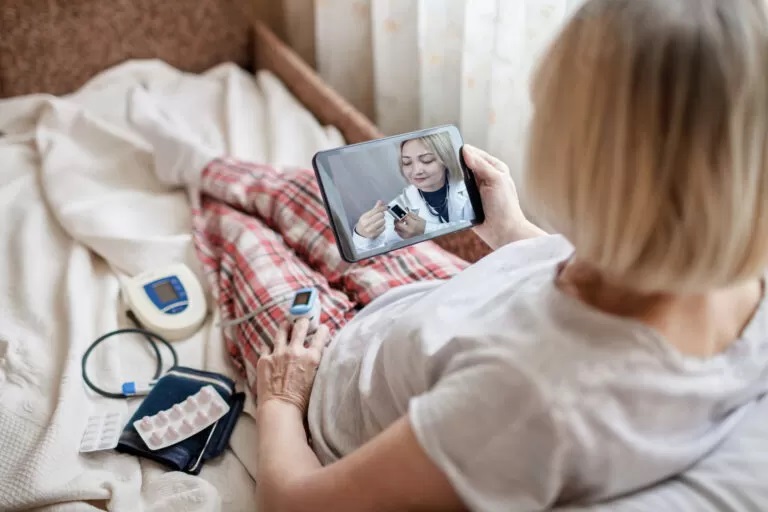Research: 5G offers societal improvements
June 28, 2023

5G-enabled technologies will deliver significant improvements across society, including saving the NHS almost £1 billion (€1.16bn) a year, according to new economic modelling.
The findings follow the announcement of the planned combination of Vodafone UK and Three UK, as well as the launch of Vodafone’s 5G Standalone connectivity service which will create the most technologically advanced telecommunications network in the UK.
The initial launch of Vodafone’s 5G Standalone network will offer a glimpse of what is possible in the digital future, while the merger will give the two companies the scale required to invest £11 billion over the next decade. Altogether, this will create Europe’s leading 5G network, support the Government’s 5G ambitions, drive digital transformation and create jobs.
The new modelling, commissioned by Vodafone and conducted by WPI Economics, shows:
- Higher-quality, 5G-enabled remote check-ups and real-time patient monitoring through Internet of Things (IoT) technology will reduce the need for GP and hospital visits. This, an example of a shift to a preventative healthcare approach, could result in £1 billion of NHS savings a year – savings which could cover the equivalent of 15,400 new full time nursing posts.
- Installing 5G-enabled sensors, which detect problems on railways and trains, could reduce delays and cancellations – saving passengers more than 25 million hours over five years. That time saved for passengers is worth £326 million in productivity and wellbeing benefits.
- 5G-powered smart city lights, which detect movement to turn on or dim street lighting, could save local councils £700 million over the next five years. They could also reduce emissions by one million tonnes of CO2 – the equivalent of replacing 250,000 petrol or diesel cars with electric alternatives.
This modelling comes as new polling reveals that the public is realising the role tech can play in improving society for consumers and businesses alike.
A survey of 2,000 UK adults, commissioned by Vodafone, found healthcare (31 per cent), utilities such as energy and water (21 per cent), and railways (20 per cent) were identified as key sectors that people think will benefit most from 5G. Unsurprisingly, those were also the areas people say they have been most frustrated with in the last 12 months.
“Our research shows that half of the population think that technology could make their lives easier,” notes Ahmed Essam, Vodafone’s UK CEO. “For the other half, it’s up to us to bring to life the difference technologies like 5G Ultra can make to everyday life – the streets we walk down, the trains we travel on and how we look after one another.”
“Our proposed combination with Three UK will give us the scale to accelerate investment in the UK’s digital future. The launch of Vodafone 5G Ultra gives a taste of what life could be like. Together, we can deliver innovation further and faster.”
Despite the AI boom dominating headlines, the research found people believe that 5G can improve their day-to-day life, more so than AI or other innovative technologies such as drones.
People see the green shoots of change across public services – with booking medical appointments online, cashless payments on public transport and smart meters now the norm. Vodafone’s Digital Society Blueprint demonstrates how 5G-enabled technologies are also making a big impact in areas of society that people may not see, as well as what else is in store for the future.
However, some of the older generation still haven’t made up their minds on 5G. Less than a third (31 per cent) of 55-to-64-year-olds see how 5G has the potential to improve their day-to-day lives, compared with nearly three-quarters (73 per cent) of younger tech natives (18-to-34 year olds) – highlighting the need for more education around its potential.
